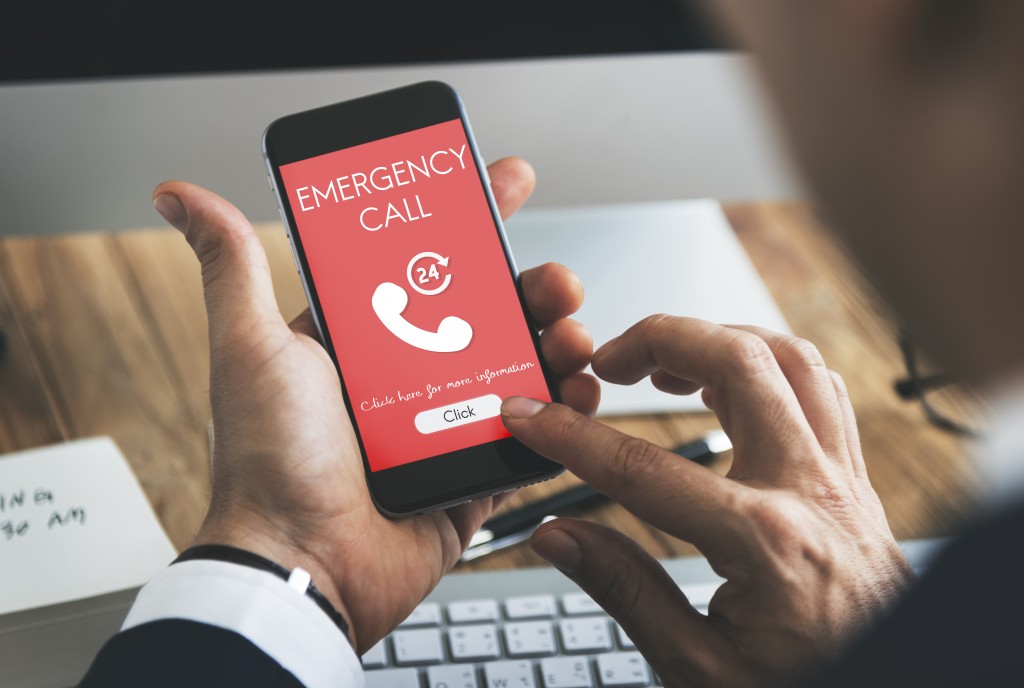According to the International Facility Management Association (IFMA) and RLE Technologies report, around one in every five businesses lack updated business continuity and emergency preparedness plans. While this figure only translates to 19 percent of the total population surveyed, it doesn’t discount the fact that the businesses belonging to that percentage have clients and employees that could get severely affected by an emergency that’s not planned for properly.
Meanwhile, there’s also the possibility that despite proper planning and preparedness measures, things could still go wrong. For believers of Murphy’s Law, this is hardly a surprise since they maintain that whatever it is that could go wrong, would go wrong no matter how one wishes it would not.
The idea, then, is to know how to react or what to do if certain emergencies happen inside or within the premises of a business establishment to prevent bodily injuries or catastrophic damages to the facilities.
Here are four of the most common business emergencies and what responses you can do should they happen and how to prevent them from happening again:
Theft/burglary
Business theft is an ever-present threat to any commercial establishment. Even high-end banks with sophisticated security systems in place are not safe from the most determined and skilled intruders.
In case of theft or burglary on your premises, you need to immediately call the police, so they could start an investigation into the matter. If you have CCTV cameras in place, check the footage and provide the police with a copy to help them in their investigation. Also, be sure to immediately conduct a full inventory of your facilities, specifically the items that can be easily pilfered.
Moving forward, consider upgrading your security system to include better deterrents such as an alarm system, tougher locks on doors and windows, and motion-activated perimeter and inside lights. In case of employee theft, see if there are things in your policy that you can change to eliminate any chances of an employee dipping his or her hands in the cookie jar.
Running toilets, leaky faucets/pipes
Water leaks are among the most common plumbing problems in homes and commercial establishments and also one of the most damaging emergencies.
Leaky faucets and pipes, for one, may not always be easily observable and it could be damaging already when finally detected. Running toilets are also quite sneaky and you might only have a clue about them once the monthly water bill shows up and you see quite a huge jump from the previous month’s figure.
For any of these, you need to call in your local plumbing experts to contain the problem. The plumber would identify the source of the leaks or the cause of the running toilets and perform the necessary fix. Additionally, your plumber could replace or upgrade your toilet, pipes, and faucets to heavy-duty ones, so they will last longer without needing repairs.
Fire

Commercial fire can happen no matter how careful you may be.
In case a fire occurs in your establishment, the first thing you should do is to find ways to contain the fire. If you have fire extinguishers around, they should be the first items you must use to put out the fire.
Additionally, someone should quickly inform the local fire station, so proper help would be sent right away. You should also order the immediate evacuation of the premises and secure essential documents or valuables before leaving.
After the fire has been managed, be sure to have a copy of the fire department’s report to see the source of the fire. Based on the results, ask them for recommendations on how to prevent a similar incident from happening and be sure to heed such expert recommendations.
Earthquake/ground shaking
There’s practically no place on this planet where earthquakes do not occur. In fact, earthquakes do happen practically every minute, although many of them are too weak to be noticed.
Should there be a particularly violent earthquake or ground shaking at any given time, everyone inside the premises should perform the duck, cover, and hold maneuver and wait for the ground shaking to stop before evacuating the building.
No one should use the elevator but take the stairs instead. Gas valves should be properly sealed or turned off, and no one should be allowed back into the building once an evacuation has been made.
If possible, there must be a headcount of all evacuees to see if everyone’s made it out safely or if someone was left inside. In such a case, rescuers must be alerted to it, so they could quickly launch a search and rescue operation.
Unfortunately, earthquakes cannot be prevented or even predicted. So, the best things you can do include conducting regular earthquake drills, identifying evacuation routes and removing obstructions, and having the building checked yearly for structural integrity and be retrofitted if needed.
With these response and prevention tips, responding to and avoiding costly damages to your business should be easily manageable.

